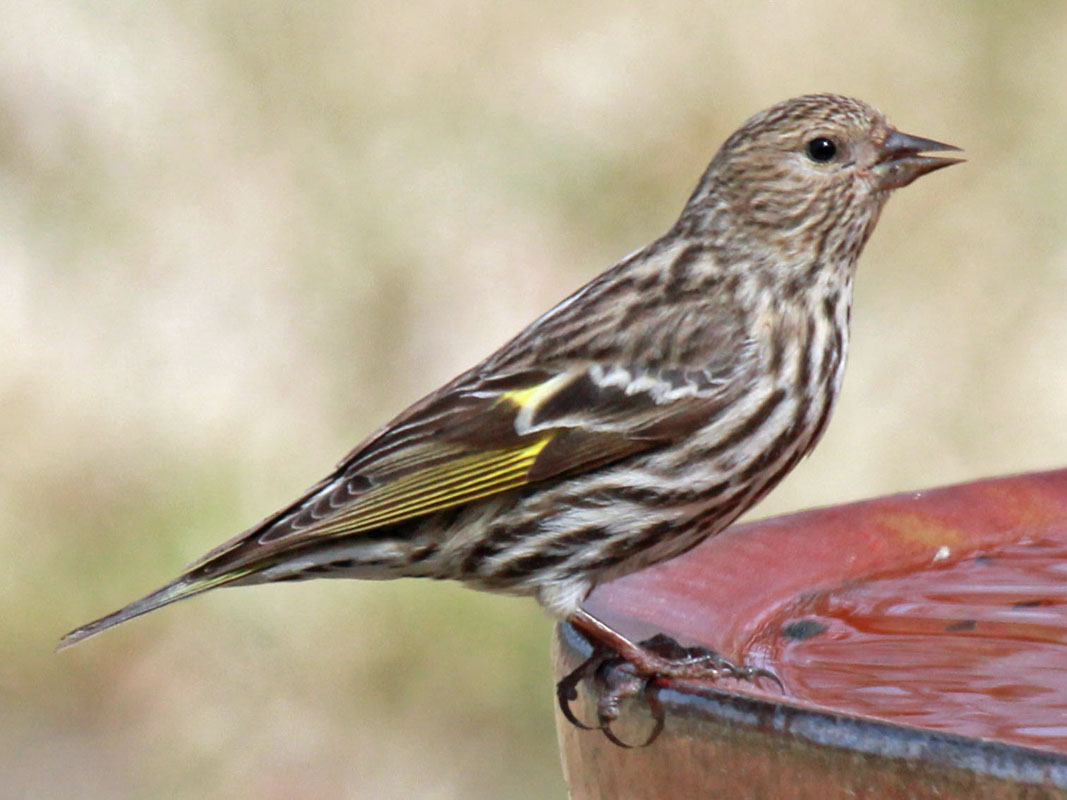Update on this post: the “salmonella pandemic” in SoCal continues to be a non-event and a freakout kept alive on social media because that’s what social media does best. Be a good bird-lover and keep your feeders clean, refresh your bird-baths regularly, and plant bird-friendly natives when it’s practical to do so — but don’t deprive your backyard birds of food and water resources.
Your feathered friends have come to depend on the seed you put out. It compensates for the loss of natural food sources that birds are experiencing almost everywhere.

There has been some buzz around, advising people in Southern California to take down their feeders in order to protect local birds from salmonella bacteria brought into the area by Pine Siskins. It’s true that these nomadic finches have been blamed for an outbreak in the Pacific Northwest. However, there is no evidence that infected birds have come as far down as SoCal. Which isn’t to say it could never happen, but taking down all feeders is not necessary now, and what few Pine Siskins have come to our area will be gone by mid-to-late Spring. If this situation changes, SFVAS will sound the alert, but we do not anticipate this being necessary.

Salmonella bacteria are transmitted only by contact with feces. This can be more of an issue if you have a platform feeder than if you favor a hanging-tube feeder, but that’s always the case: platform feeders do require more frequent cleaning and sanitizing. The Nyjer-seed feeders most favored by goldfinches do not offer birds much contact with one another’s poop, yet occasional sanitizing is still a good practice.
Bird baths offer plenty of opportunity for birds to come in contact with one another’s droppings. Thus, frequent emptying and refilling, with the occasional scrub-out, is recommended for the protection of your bathing and drinking visitors.
Birds benefit greatly from being offered food and water; bird-lovers enjoy their seasonal comings and goings with the occasional exotic migrant as icing on the cake. As long as you’re mindful of a routine degree of cleanliness, taking down your feeders in Southern California is likely to do more harm than good.
Please note that SFVAS has added a statement of its intent to actively promote diversity and inclusion to the “About” menu at the top of all website pages. It is the chapter’s intent to actively promote our programs, our walks, our love of birds and the knowledge we can share, to everyone who wishes to learn about and enjoy the wonders of avian Los Angeles.
(Cover photo credit of a male Pine Siskin: Dick Daniels, carolinabirds.org)


